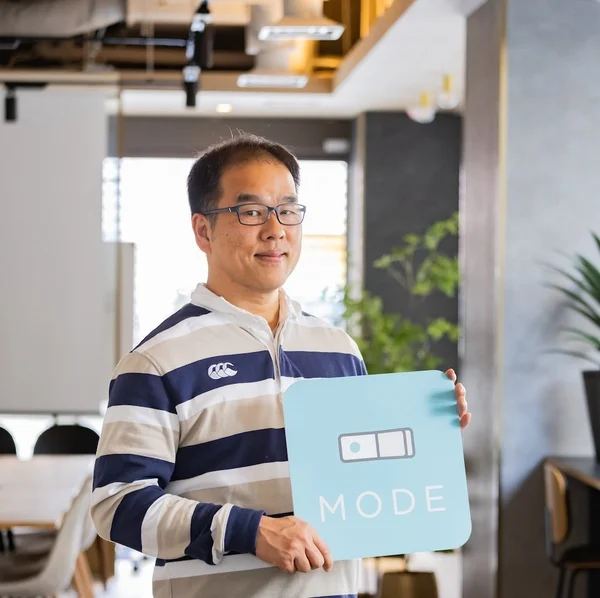Editor’s Note: This is a new Q&A series from StartUp Beat that features entrepreneurs who have successfully guided their startups (or multiple startups) to maturity. It is a complement to StartUp Beat’s coverage of early-stage startups and an effort to provide further insight into the experiences of tech entrepreneurs.
 Bio: Nick started his career as a webcasting executive in 1998 when he founded NextVenue Inc., TalkPoint’s predecessor company. NextVenue was created as an off-shoot of CNBC/ Dow Jones Desktop Video (a joint venture amongst Microsoft, NBC, and Dow Jones). Nick has previously served as an executive within Williams Communications Inc.’s Vyvx Broadband Media division. He served as president of Enterprise Services at IBeam Broadcasting and was a member of the company’s board. He holds an MBA from the Rutgers Graduate School of Management.
Bio: Nick started his career as a webcasting executive in 1998 when he founded NextVenue Inc., TalkPoint’s predecessor company. NextVenue was created as an off-shoot of CNBC/ Dow Jones Desktop Video (a joint venture amongst Microsoft, NBC, and Dow Jones). Nick has previously served as an executive within Williams Communications Inc.’s Vyvx Broadband Media division. He served as president of Enterprise Services at IBeam Broadcasting and was a member of the company’s board. He holds an MBA from the Rutgers Graduate School of Management.
SUB: What was your first entrepreneurial venture?
Balletta: My first startup venture was called Voyager Data Networks, which I started with a few friends in 1996. We had the idea that we could build a technology “hotel” for web servers. I was working for MFS communications as a sales rep at the time, and I pitched the idea to MFS. They were not receptive, so I parted ways with the company and started Voyager.
We rented a data center space at 60 Hudson Street in New York. At the time, the Internet had barely arrived, and 60 Hudson was a long distance carrier building. As an eight-person company, we were amazed to convince a company the size of Sony to allow us to host their gaming site, the Sony Station. Once we secured this anchor tenant, we were off to the races. Getting your first big client is the largest hurdle.
After Sony joined us, we then succeeded in adding other large clients such as Dow Jones, The NY Commodities Exchange and a few others. As with any new company on the precipice of success, we needed more working capital, and I began the arduous task of operating a business and raising money simultaneously. I reached out to a former colleague who was running Global Center, a similar business in California. They had a comparable story and were hosting Yahoo and a new startup called Netscape. Our two small companies were hosting some of the largest sites on the Internet. We merged the companies, filed for an IPO, and ended up selling the company to Frontier Communications for $180 million. This all occurred within two years; those were the good old days.
SUB: What prompted you to start TalkPoint in the first place?
Balletta: After selling Voyager, I was semi-retired and doing some consulting. While at MFS, I had worked with several large enterprises. One of the organizations to which we provided services was CNBC Dow Jones Desktop Video. This was a venture set up in the mid-1990s among Microsoft, NBC and Dow Jones. Their mandate was to distribute CNBC core television content over the Internet using Netshow, the predecessor to Windows Media. This group was way ahead of its time. We think nothing of watching video on the Internet today, but this was 1995. People relied on dial-up connections because broadband didn’t even exist in name. All of this was being done through an e-commerce site. Great idea, but bad timing.
I knew the venture was struggling, and I also knew that for political reasons they could not shutdown the business. I, along with two associates, approached NBC, and we pitched buying the assets, placing them into a dot.com startup, getting it funded and restructuring the business model. We purchased the assets of the venture and Microsoft, NBC and Dow Jones took a minority carried interest. TheTalkPoint predecessor, Nextvenue was born. We did several rounds of financing and raised over $40 million in private equity.
SUB: Was there a point at which you knew TalkPoint would hit it big?
Balletta: It took a while for us to gain sure footing because we were involved in several transactions and several economic cycles. In 2000, we filed for a public offering as Nextvenue. While on the road, the markets began to take a turn for the worse. We were approached by several public companies in our space, and we worked on a deal to sell Nextvenue to IBeam Broadcasting in late 2000. IBeam was the poster child for dot.com Silicon Valley high flyers. Great marketing, great hype, but no business model. However, we did have ads running during the Super Bowl.
In the Summer of 2001, as the capital markets dried up, we did a PIPE financing with the Williams Companies to keep the company alive. In December 2001, we merged the combined entity into Williams Communications. We saved the business! The investors weren’t happy, but the employees and customers were thrilled. Three months later, Williams filed for bankruptcy. This entailed another restructure and more uncertainly for the employees and customers. However, with every tectonic shift comes opportunity, and I had the chance to buy back my company. The good old days were over; the dot.com bubble had burst.
Churchill said “adversity introduces us to ourselves,” and I say it introduces you to the people around you. Once I got approval to extract Nextvenue from the clutches of the behemoth Williams, I was given 30 days for completion. This was happening in a post 9/11 economy when all the big carriers were restructuring their debt, Enron was imploding, Bernie Ebbers from Worldcom was going to jail and the capital markets were in turmoil. I pulled out the assets with the help of one of my Voyager associates. He was a partner at One Equity Partners, Bancone’s private equity shop, and they owned a public shell company. We moved the assets into the public shell and renamed the company TalkPoint.
SUB: What was the metric/milestone that indicated to you that TalkPoint had moved past startup stage?
Balletta: In the dot.com era, financing was easy, and it was all about topline growth. In today’s market, growth is important, but profitable growth is more important. We ran TalkPoint as a public company for almost two years. Running a technology company which is under-capitalized post Sarbanes Oxley is not fun. We took the company private in 2004, and that process was interesting. I may write a book about it. Suffice it to say, we have made Darwin proud!
After the roller coaster ride of the dot.com era, two private placements, an S1 filing, a merger, a PIPE, a sale, a balance sheet restructure, an asset purchase and a going private transaction, it was time to go to work. TalkPoint was out of transaction mode and back in startup mode.
Once a company is profitable, cash flow positive and self-sustaining, it is officially out of startup mode. We got there in 12 months and have enjoyed double-digit, top-line and bottom-line growth ever since.
SUB: Was there a “tipping point” when TalkPoint really picked up steam and where it started growing exponentially?
Balletta: In order to scale our business, we needed to develop a channel partner strategy. We focused on value added resellers, and looked for companies who were successful in specific vertical markets or had a horizontal application where we felt our technology would be a natural complement. We were initially very successful in medical education, publishing and investor relations. In 2007, we began to see a technology gap in the web conferencing market. Web conferencing technology is great for desktop sharing and small collaborative work group meetings, but it does not scale well to larger audiences. Web conferencing companies needed a product that scaled to larger audiences and included video. TalkPoint was the perfect fit. In 2007, WebEx began to resell TalkPoint services. That was a game changer.
SUB: What were the most important lessons you learned about entrepreneurship while building TalkPoint?
Balletta: The key component to success for any enterprise, and especially any entrepreneurial venture, is the people. I am surrounded by smart people who work hard. You need to have both ingredients. Hire smart people, direct them, empower them, give them responsibility and, of course, hold them accountable. We have several key members of our senior team that worked at CNBC Desktop Video, and they have been with me for 10 years. They could write a book, too.







